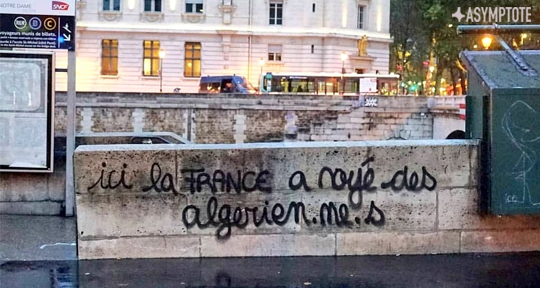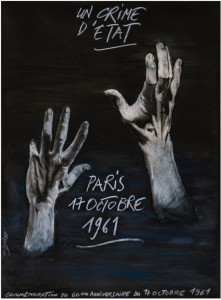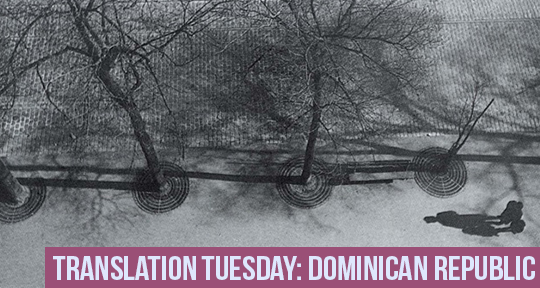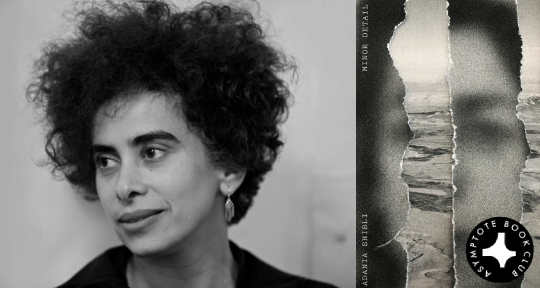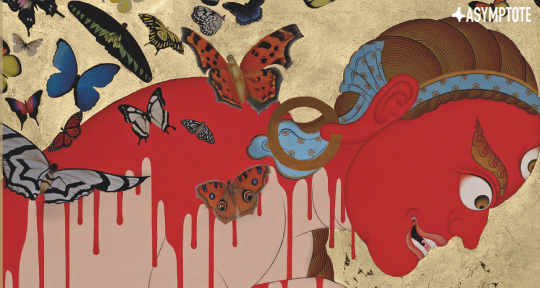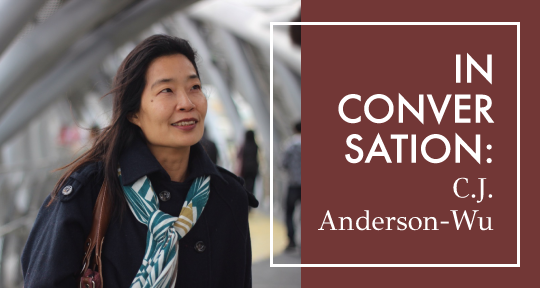In his seminal work on colonialism and subjugation, The Wretched of the Earth, Frantz Fanon asks: “how do we get from the atmosphere of violence to setting violence in motion?” Shukri Mabkhout liberates this idea into story gracefully in his debut novel, The Italian. Delineating the fermenting revolutions in late twentieth century Tunisia through the scope of one young man, Mabkhout paints a vivid reproduction of the oppressive conflicts between nationalism and religion, love and lust, ideology and action. We are proud to present this vivid text, and its detailed contours of individual life in the wider contexts of country, as our Book Club selection for the month of October.
The Asymptote Book Club aspires to bring the best in translated fiction every month to readers around the world. You can sign up to receive next month’s selection on our website for as little as USD15 per book; once you’re a member, join our Facebook group for exclusive book club discussions and receive invitations to our members-only Zoom interviews with the author or the translator of each title.
The Italian by Shukri Mabkhout, translated from the Arabic by Miled Faiza and Karen McNeil, Europa Editions, 2021
Shukri Mabkhout’s The Italian, winner of the 2015 International Prize for Arabic Fiction, was first published in the aftermath of the Arab Spring. Perhaps with some suggestion of history repeating itself, it is set during another period of political upheaval in Tunisia—the 1980s and 1990s, which saw a ‘bloodless coup’ led by Ben Ali, the leader who was to be deposed in 2011. Intricate and detailed, heavy with politics, philosophy, food, and sex, the novel is an insight into Tunisian history and society, human relationships, and the often politically motivated and self-interested inner workings of institutional power.
The novel opens with its own violent outbreak and fallen patriarch. At his father’s funeral, the protagonist, Abdel Nasser—nicknamed el-Talyani (the titular Italian) for his Mediterranean good looks—attacks the local imam. The family and wider community are shocked and shamed, but also perplexed; as the narrator, one of el-Talyani’s childhood friends, tells the reader, grief over his father’s death “didn’t fully explain it.” Abdel Nasser’s family members offer various explanations—the “corrupt books” he read as a child, his university classmates, the personal circumstances of his divorce, or the “deep-rooted corruption” of his morals. While the broader community simply consider him the black sheep of the family, none of these explanations seems to satisfy the narrator. Jumping back in time, the novel thus sets out to unpack what might have motivated Abdel Nasser’s outburst, and, along the way, also details much of the political history of Tunisia during these tumultuous decades.
Abdel Nasser has a complex and somewhat distant relationship with his family, and in particular with his brother, Salah Eddine. Salah Eddine left Tunisia as a young man, and is now an “esteemed academic and international finance expert” living in Switzerland—in other words, he is the epitome of cosmopolitanism and institutional economic liberalism. When Salah Eddine leaves Tunisia, Abdel Nasser assumes the throne as the de-facto eldest son—which Mabkhout explains endows a special status and freedom within the Tunisian family. He also takes up residence in his elder brother’s room, which provides him with an intellectual awakening through books and records, and in which he also experiences a sexual awakening: he is groomed by the family’s significantly older neighbour, who—by no means coincidentally—is his brother’s ex-lover. The room eventually also becomes a political hotbed where Abdel Nasser discusses philosophy, politics, and Marxist economics with select classmates, for he is set apart from others not only by his good looks, but also his astute mind and leadership skills. He goes on to study law at university, where he acts as a leader and recruiter in an activist student organization. READ MORE…






